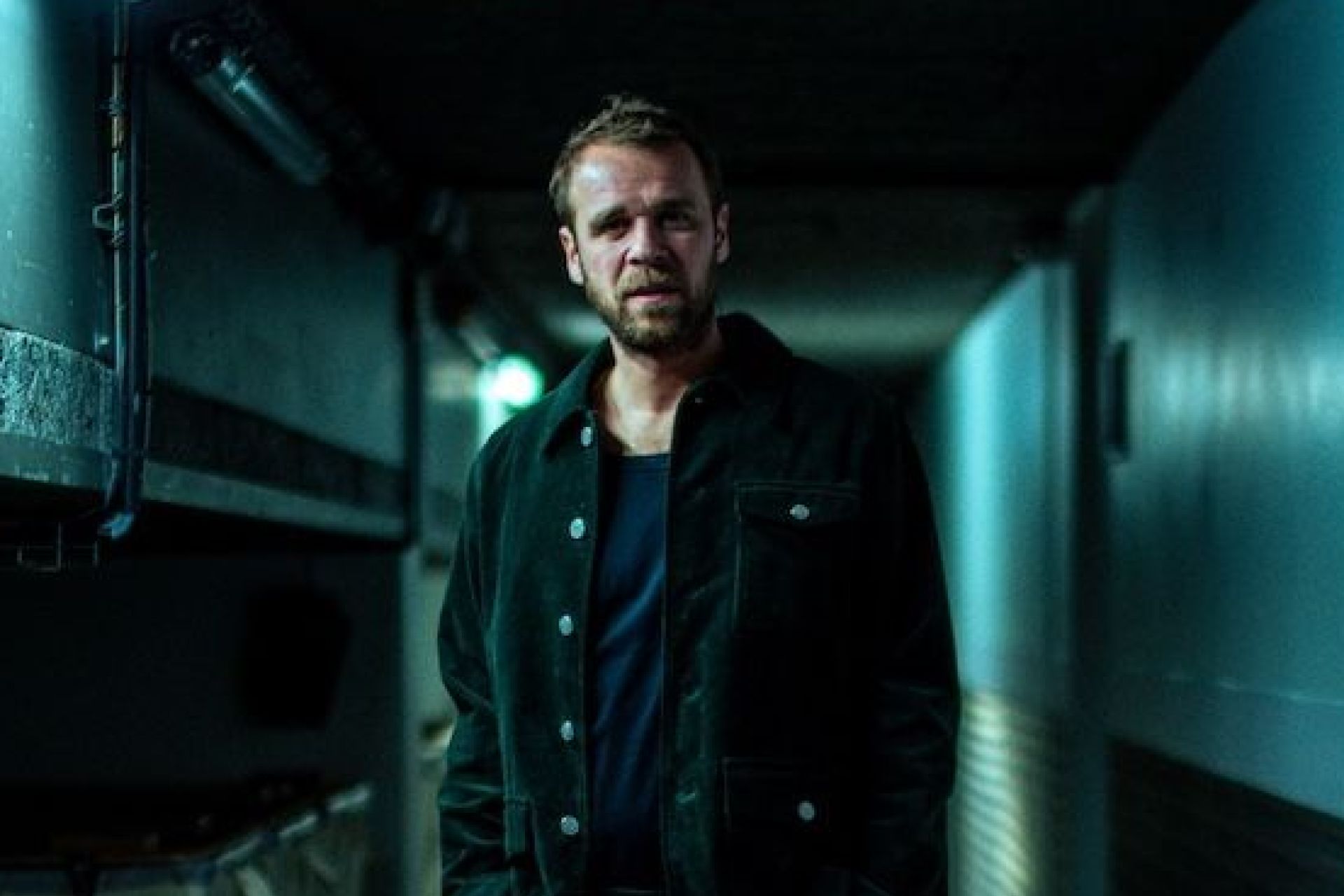



August 17, 2025
Paid show
“Be yourself; everyone else is already taken.”
Seated at a café in Ménilmontant where he writes each day, Cyril Mokaiesh casually reclaims Oscar Wilde’s famous aphorism to describe his fifteen years—on the center court and in the parallel corridors of French chanson. It all began with the breakthrough of Communiste in 2011, after a rock warm-up with the eponymous quartet. This trajectory—former top-level tennis player turned concert hall orator—is unlike any other. Passionate, fiery, a committed citizen, sometimes enraged, yet also a voice of wisdom, Cyril has, since his beginnings, mapped an uneasy world like the origami of lost causes, always searching, against all odds, for a glimmer of hope and reasons to believe.
He opens this eighth and newest album, Bonne chance pour la suite (“Good Luck Going Forward”), with a quote from a very much alive contemporary, Vincent Lindon:
“I’m getting better and better at a job I love less and less.”
A fleeting case of the blues? Or a clear-eyed, talk-sung reflection—on Léo Ferré’s path—against the headwinds of our era, the era of influencers, hustlers, and algorithms? This song of mood, not without humor and self-mockery, ends with a shouted “Bonne chance pour la suite,” the title of an album where, as it turns out, the ‘going forward’ gracefully disproves any sense of helplessness.
It’s been nearly a decade, since Clôture (2017), that Mokaiesh found himself alone with himself. In the meantime, he released a vibrant, collective album linked to his Lebanese roots, blending electro and traditional music (Paris-Beyrouth, 2020), another of duets with the best of his peers (Dyade, 2021), then paid a grand tribute to the prince of nonchalance, Georges Moustaki (Le temps de vivre, 2023). This man, who writes “so as not to end up dry, bitter, and pedantic,” has never lost faith—in humanity or in himself. It was the most uncompromising of singers, Anne Sylvestre, whom he met at one of her last Francofolies concerts, who rekindled his spark with her phrase, “Write so as not to die,” and convinced him that “it’s the journey that matters, not the destination.”
To give flesh to these new songs, composed bare-bones, with guitar and piano, he entrusted production to Romain Humeau, whom he first met when opening for a shared hero, Bernard Lavilliers. The leader of Eiffel—multi-instrumentalist, arranger, and lover of wide-open musical spaces—was clearly the perfect fit to inject this fever, this drive “to be grander than you are,” which has animated Cyril since his glorious beginnings.
“Everything comes alive again,” sings Mokaiesh as he enters his forties, and it’s vital energy that surges through each of these twelve tracks, painting a portrait of the times and its upheavals, never yielding an inch to the cynicism that so often infects it.
Approximatif, which vigorously and precisely targets the charlatans of social media and populist opinion-makers, calls for slowing the pace of chaos, while Envie d’air suggests a way out from above. Mokaiesh may well be swimming against the current—naïve, a dreamer, an idealist—always “believing in living together, in the radiant sun,” thinking that “We Need Love,” and “believing our days are precious.” Yet he displays the relentless chivalrous panache of those who never set foot on the ground until the earth finally takes them. As an engaged writer, he keeps his humanist compass (Le chant du migrant) and his soul to the left, even as reference points become shakier and more blurred, and the fight, they say, is lost in advance.
Another connection happened—with a fellow parent, now friend, the singer Raphaël, “a solid, sunny guy” with whom he co-wrote the album’s most sensitive, intimate tracks: the love anthem Grâce à toi and A ce soir, a moving song to his teenage son, wrapped in comforting arpeggios.
To Mokaiesh’s fluid writing, to these words flowing like streams despite all obstacles, Romain Humeau added a musicality born of deep, loving respect for both chanson and pop—never nostalgic, but with a taste for that nobility as deeply French as it is Anglo-Saxon. Blending electronics and organic sounds, string sextet and rounded bass, crystal-clear keyboards and sultry grooves (La vérité des baisers), the work is as refined as its subject is dense and profound. Bonne chance pour la suite begins in renunciation, but by the end, it is clear that what awaits is a true new beginning.